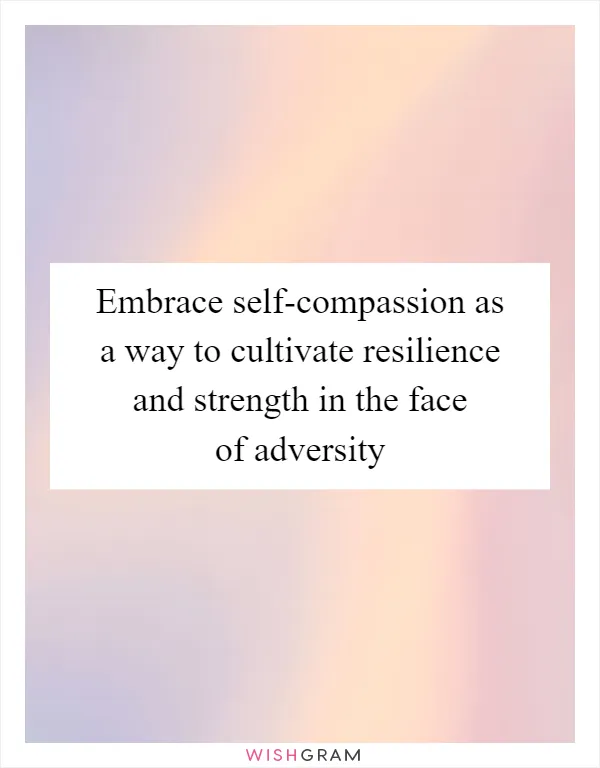Life is a tapestry woven with threads of joy, sorrow, triumph, and adversity. We all encounter challenges that test our limits, leaving us feeling vulnerable and in need of support. While compassion and empathy are essential human qualities, there’s a crucial distinction between offering genuine support and bestowing pity. Pity implies weakness and insufficiency, suggesting that the recipient is incapable of navigating their own path. This article explores the power of rejecting pity and embracing strength, resilience, and empowerment in the face of life’s inevitable hurdles.
This exploration will delve into the detrimental effects of accepting pity, highlighting the importance of self-reliance and inner fortitude. We’ll examine practical strategies for cultivating resilience, fostering a mindset of empowerment, and ultimately, moving forward with confidence and purpose.
Rejecting Pity
I don’t want your pity. These words carry a powerful message: a refusal to be defined by hardship, a determination to rise above circumstance. Accepting pity can become a self-fulfilling prophecy, trapping us in a cycle of helplessness and dependence. It undermines our sense of agency, suggesting that we are passive recipients of fate rather than active participants in shaping our own lives.
When someone offers pity, it often stems from a well-intentioned desire to comfort or alleviate suffering. However, their perception of our situation may not align with our own reality. We might be experiencing pain and difficulty, but within that struggle lies an opportunity for growth, learning, and transformation. Accepting pity can prevent us from fully embracing this potential.
Instead of succumbing to the weight of pity, let’s choose to acknowledge our challenges with honesty and courage. Recognize that setbacks are a natural part of life, and they do not diminish our worth or capabilities.
Embracing Strength

True strength lies not in the absence of adversity but in our ability to navigate it with grace and determination. It’s about cultivating an inner fortitude that allows us to persevere through difficult times, emerge stronger, and continue moving forward. This doesn’t mean suppressing emotions or pretending everything is fine; it means acknowledging our feelings while maintaining a commitment to resilience.
Strength isn’t solely about physical prowess or overcoming external obstacles. It encompasses mental, emotional, and spiritual resilience as well. It’s about developing self-awareness, cultivating healthy coping mechanisms, and fostering a belief in our own capacity to handle whatever life throws our way.
Remember that strength is not a fixed trait; it’s a muscle that can be developed and strengthened over time. Embrace challenges as opportunities for growth, learn from your experiences, and celebrate your victories, no matter how small.
Cultivating Resilience
Resilience is the ability to bounce back from adversity, to adapt and thrive in the face of change and uncertainty. It’s a vital quality that allows us to navigate life’s inevitable ups and downs with grace and determination. Cultivating resilience involves several key elements:
Building Self-Awareness
Understanding your strengths, weaknesses, triggers, and coping mechanisms is essential for developing resilience. Pay attention to your thoughts, feelings, and behaviors, and identify patterns that emerge during challenging times. This self-awareness will empower you to make conscious choices that support your well-being.
Developing Healthy Coping Mechanisms
When faced with adversity, it’s crucial to have healthy coping mechanisms in place. These can include exercise, mindfulness practices, spending time in nature, connecting with loved ones, or engaging in creative pursuits. Experiment with different strategies and find what works best for you.
Fostering a Growth Mindset
A growth mindset is essential for resilience. It involves believing that your abilities and intelligence can be developed through effort and learning. Embrace challenges as opportunities for growth, view setbacks as temporary, and focus on progress rather than perfection.
Finding Empowerment

Empowerment comes from recognizing our own agency and taking ownership of our lives. It’s about making conscious choices that align with our values and goals, even in the face of adversity.
Setting Boundaries
Establishing healthy boundaries is crucial for empowerment. Learn to say “no” to requests or situations that drain your energy or compromise your well-being. Protect your time and resources, and prioritize activities that bring you joy and fulfillment.
Taking Action
Empowerment isn’t just about thinking positively; it’s also about taking action. Set goals, break them down into smaller steps, and take consistent action towards achieving them. Even small steps forward can build momentum and create a sense of progress.
Moving Forward
Life is a journey filled with both challenges and triumphs. By rejecting pity, embracing strength, cultivating resilience, and finding empowerment, we can navigate life’s complexities with grace and determination. Remember that setbacks are opportunities for growth, and every obstacle overcome strengthens our resolve.
Embrace the power within you to shape your own destiny. Move forward with confidence, knowing that you have the ability to create a fulfilling and meaningful life.
Conclusion
The path to personal growth and fulfillment is paved with resilience, strength, and self-belief. Rejecting pity allows us to step into our true potential, embracing challenges as opportunities for learning and transformation. By cultivating inner fortitude, fostering healthy coping mechanisms, and taking ownership of our lives, we can navigate life’s complexities with grace and determination. Remember, I don’t want your pity. I want your support, your encouragement, and your belief in my ability to overcome any obstacle that comes my way.



